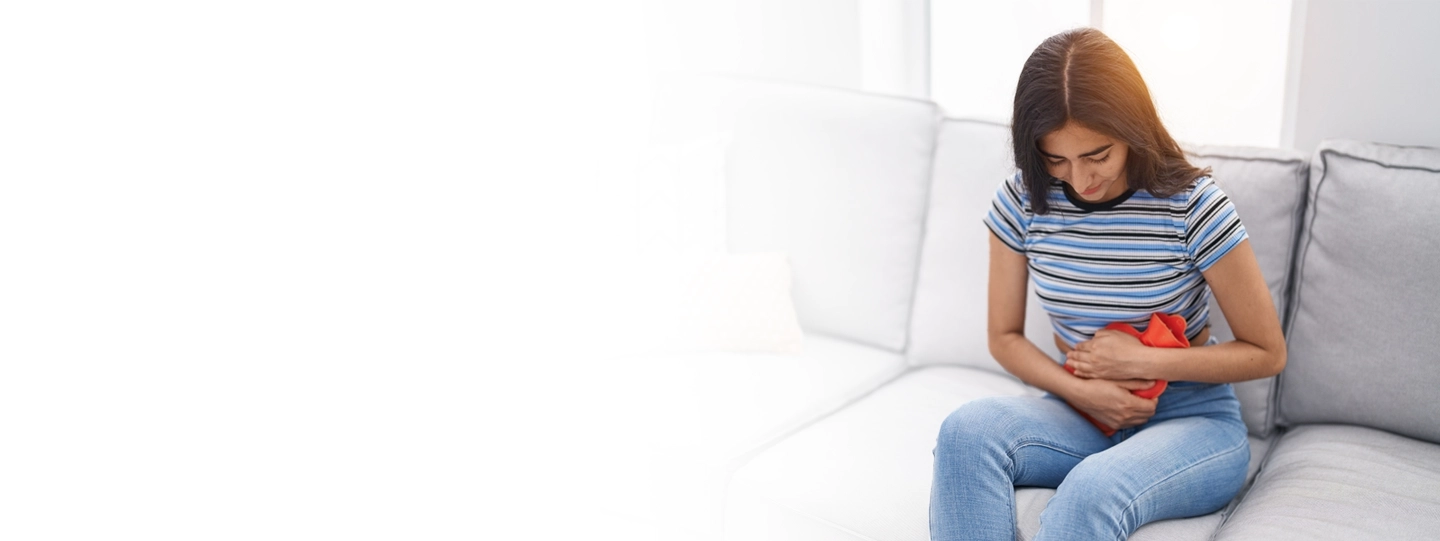

Before we discover what hurts, let's first see what a period is. Each month, a woman's uterus gets ready for pregnancy by developing a thick layer of tissue called the endometrium. If no pregnancy has resulted, the body sheds this lining through the vagina—your period.
This is brought about and regulated by hormones, namely prostaglandins. The prostaglandin-like hormones make the uterus contract and strip its lining. If prostaglandins are present in excess, then the contractions are powerful and result in crampy pain during menstruation.
Some of the common causes of period pain are:
The pain is also due to the fact that the contracting uterus forces out the endometrium lining. The more forceful the contractions, the greater the chances of cutting off some of the blood supply at times and also pain.
Excess prostaglandins not only cause strong contractions but can even influence the digestive system and present as nausea, diarrhea, or headache during menstruation.
Women experience secondary dysmenorrhea, with menstrual cramps accompanied by other conditions including:
These conditions can lead to chronic pelvic pain, heavy menstrual bleeding, and may even lead to infertility if left untreated.
Menstrual cramps can further be classified into:
It is usual period pain not caused by any illness. It often begins a few years after the first menstrual period and will subside with advancing age or following childbirth.
It is pain with reproductive organ disorders. This occurs later in life and becomes increasingly worse, contrary to primary dysmenorrhea.
The severity and type of symptoms may differ, but most typical symptoms are:
It's okay to have mild cramps. But pain that:
…might not be normal and requires medical attention. If you are in Pune, visit the top gynecologist in Wakad for proper assessment.
If your pain is not severe or moderate, you might not need to take medicines every time. These are some of the natural home remedies which ease period pain:
A heating pad or hot water bag on your stomach soothes the uterine muscles, easing cramps. A warm bath is also beneficial.
Walking, stretching, or yoga increases blood flow and releases endorphins, natural painkillers.
Downing water prevents bloating, which aggravates cramps. Have a minimum of 8–10 glasses per day, especially during your cycle.
Experiment with:
Steer clear of caffeine and alcohol, greasy food, and sweets.
Lavender or clary sage oil with a carrier oil massaging the lower abdomen can relieve pain and calm the body.
Chamomile, ginger, peppermint, and fennel teas can calm cramps and nausea.
If these fail to assist you, medical relief might be required. Talk to your gynecologist:
Nonsteroidal anti-inflammatory medications reduce prostaglandins and relieve pain. Take food along with them to prevent stomach problems.
The pill, patch, or intrauterine device that contains hormones regulates or prevents periods, lessening the severity of cramps.
In extreme cases, muscle relaxants or additional medication is administered.
If caused by cysts, endometriosis, or fibroids, surgery may be advised to eliminate the abnormal growth.
Don't dismiss your discomfort. If you have:
A trained physician can diagnose and treat early on. If you are in Pune, consult the best gynecologist in Wakad for professional diagnosis and customized treatment.
Although you can't avoid cramps entirely, there are some lifestyle modifications that will make periods less difficult:
Bloody periods are life—but the agony is not. From discovering what can cause them to uncovering certain relief methods, there are several ways to cure menstrual cramps.
Should you be uncertain whether your period cramp is the norm, talk to your physician. Whether it be by making an adjustment in your way of life, by medication, or medical treatment, relief is en route.
Don't wait to consult the best gynecologist in Wakad for customized solutions and treatment. Book your appointment now
at Surya Hospitals.
Q1. I experience pain only on the first day of my period. Why is this?
A: That is when prostaglandin levels are highest. While the uterus is shedding its lining, the contractions are strongest on Day 1.
Q2. Does diet influence period pain?
A: Yes. Chili, sweet, or greasy food can induce inflammation. Proper diet and drinking plenty of water decreases pain.
Q3. Is painful menstruation a symptom of PCOS or endometriosis?
A: They could be. Pain along with heavy bleeding, irregular periods, or tiredness could be a symptom of an order of the reproductive system. Get checked out by a doc.
Q4. Can teenagers take painkiller cramps?
A: Yes, under adult supervision. OTC medications are fine for teenagers provided they are consumed correctly.
Q5. Will stress make period pain worse?
A: Yes. Stress increases cortisol, which is inducing a hormone imbalance, which will potentially make cramps worse.
